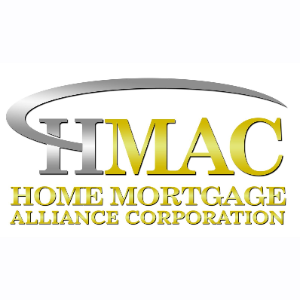
Paws for concern: Pet hazards lurking in your home
___
Published Date 8/16/2024
In the world of dog ownership, love knows no bounds. Homeowners even design kitchen cabinets to include a pet station, complete with a cabinet for food, treats, leashes, and bowls that slide out in drawers for their precious pooches.
From plush beds to gourmet treats, devoted pet parents spare no expense in pampering their furry companions, as reported by Realtor’s Claudine Zap. Zap warns that amid this lavish care, a silent threat lurks in every home, often unnoticed until it's too late, citing Dr. Beth Turner, a seasoned veterinarian from Colorado. Together they shed light on these hidden dangers, offering a wake-up call to dog lovers everywhere.
With more than two decades of experience in both shelter volunteering and private practice, Dr. Turner has witnessed firsthand the devastating consequences of household hazards on our canine friends. Her mission is to educate pet owners about the everyday items that could spell disaster for their beloved dogs — shockingly commonplace things like a vase of beautiful flowers or a comfortable recliner where you unwind after a long day. Even that innocuous bag of chips could pose a serious threat to your four-legged friend.
Human medications top the list of hazardous items, but the bottom line is — what cures us could kill our pets, making it crucial to keep all pills, ointments, and syrups well out of paw's reach. Zap says equally dangerous are certain human foods that dogs find irresistible, like garlic, onions, and chocolate. Did you know the ingestion of grapes and raisins, which seemingly harmless, can lead to acute kidney failure in pets? Even a sip of your evening cocktail could spell trouble, as alcohol affects dogs much more severely than humans.
But wait. There’s more. Xylitol, a common sugar substitute found in many sugar-free products and especially in chewing gum, can cause a rapid drop in blood sugar and liver failure in dogs. Bones, often thought of as a classic dog treat, can splinter and cause internal injuries or blockages.
Make sure household chemicals such as insecticides, rodenticides, antifreeze, fertilizers, and cleaning products are kept far away from your dog or cat, as all pose significant risks if ingested. Even batteries, if chewed, can cause severe chemical burns.
Hard to believe that many houseplants, prized for their beauty, harbor toxins that can be harmful or even fatal to dogs. So it’s wise for for pet owners to research and identify which plants are safe to keep in a dog-friendly home.
Plastic bags and containers can lead to suffocation if a curious pup gets their head stuck inside, so cut up empty snack bags before disposal and keep all such items well out of reach.
Smaller breeds are more prone to getting trapped in tight spaces or injured from jumping off furniture. Larger dogs, with their height advantage, can reach countertops and stovetops, potentially causing fires or ingesting harmful items. And certain “always hungry” breeds, such beagles, boxers, golden retrievers, Labrador retrievers, pugs, rottweilers, and Saint Bernards are more prone to risky behaviors due to their insatiable appetites, according to Turner.
Puppies, regardless of breed, require extra vigilance as their curiosity and penchant for chewing make them especially vulnerable to household dangers.
So, how can pet owners create a safer environment? Zap says Dr. Turner offers several practical tips, including securing all cleaning products and chemicals in elevated, dog-proof cabinets, and being mindful of items left within reach, including food, medications, small objects, and even socks. When taking medication, do so over a sink or open drawer to prevent dropped pills from becoming accessible to pets.
Lock all cabinets, doors (especially bathrooms), and trash bins. Keep guest rooms closed, as suitcases often contain items dangerous to curious canines. For those with yards, regular checks for hazards like mushrooms, fence openings, or harmful objects are essential.
Zap says that in today's tech-savvy world, it’s a great idea to use cameras to monitor dogs throughout the day, providing an extra layer of security when you're away from home.
Realtor, TBWS
All information furnished has been forwarded to you and is provided by thetbwsgroup only for informational purposes. Forecasting shall be considered as events which may be expected but not guaranteed. Neither the forwarding party and/or company nor thetbwsgroup assume any responsibility to any person who relies on information or forecasting contained in this report and disclaims all liability in respect to decisions or actions, or lack thereof based on any or all of the contents of this report.
View the full disclaimer and licensing details at https://homemac.com/mortgage-banker-disclaimer.


David D'Angelo
HMAC Social Media Manager
NMLS: HMAC #1165808
Home Mortgage Alliance Corporation (HMAC)
4 Hutton Centre Dr, Santa Ana CA 92707
Company NMLS: 1165808
Office: 800-900-7040
Cell: 310-980-7157
Email: info@homemac.com
Web: https://homemac.com

David D'Angelo
___
HMAC Social Media Manager
NMLS: HMAC #1165808
Cell: 310-980-7157
Last articles
___

The chicken or the egg? Buy or build?
11/8/2024
The decision to buy or build a home has become increasingly complex in today's m... view more

The bond market is calmer after several days of high volatility
11/8/2024
Yesterday Powell and the Fed lowered the FF rate by 25 bps as was widely anticip... view more

Don't Pull a Clark Griswold: Your Guide to Christmas Light Success
11/7/2024
Unlike Clark Griswold's infamous 25,000-bulb holiday mishap...... view more

Markets under heavy pressure as inflation worries increase
11/6/2024
Inflation fears running rampant this morning...... view more

Balancing deductible and premium: Always a crap shoot
11/5/2024
Insurance is simply termed as the mitigation of risk. True, you pay, and pay, an... view more

The reported US trade deficit for September was higher than expected
11/5/2024
The September Goods and Services Trade Balance was $-84.4B versus estimates of.... view more

Housing Market Shift: Listings Soar to Pre-Pandemic Levels
11/4/2024
Even if home prices have not fallen, it might be good to know that you’ve got mo... view more

Markets prepare for an extremely volatile week
11/4/2024
A nice improvement this morning, the 10 year note began down 11 bps from Friday,... view more
Load more
 Home Mortgage Alliance Corporation (HMAC)
Home Mortgage Alliance Corporation (HMAC)





































